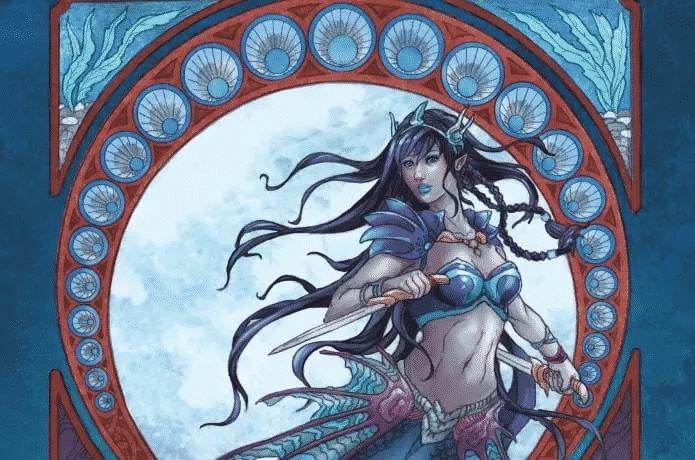Anson Frericks says he tried to warn them. For a little over a decade, Frericks worked at Anheuser-Busch InBev, finishing his time at the company as president of sales and distribution. He left in 2022 to co-found Strive, the anti-woke investment company that rebelled against diversity, equity and inclusion (DEI) and environmental, social, and governance (ESG) guidelines for companies, arguing that political and ideological goals were crowding out policies that made sense for shareholders.
His Strive co-founder, Vivek Ramaswamy, ran for president. Frericks watched InBev tumble into controversy, after a Bud Light sponsorship video with transgender influencer Dylan Mulvaney backfired, turning the brand into a conservative punchline. In “Last Call for Bud Light,” Frericks writes about what he saw inside the company, at what might have been the apogee of DEI — published at a moment when a new president is trying to root those policies out of the public and private sectors. This is an edited transcript of our conversation.
Title iconThe View From Anson Frericks
David Weigel: One of the turning points you write about, after the company is purchased by InBev, is the decision to move the headquarters from St. Louis to New York. What was the impact of that?
Anson Frericks: The company had been headquartered in St Louis since the 1870s. It was in the heartland. There’s an old saying: If it plays in Peoria, it’ll play across the country. And Peoria is pretty close to St Louis. After the company was bought by InBev, a lot of the execs who had been living in New York moved to St. Louis, which wasn’t the sort of metropolis they were used to. Their rationale for moving the company was, well, we can’t get great talent to St Louis.
This is around the same time that Donald Trump is coming up, running for president, so the move is almost a metaphor about culture moving the coast. You lost a lot of people that were more Midwestern or family oriented. You picked a lot of people that were younger, more urban in their tastes. In the Midwest, Anheuser, Busch, Bud Light, Budweiser, had 50% plus market share. It was much less in New York. I’d say that the Dylan Mulvaney downfall started there. We started dropping country music sponsorships and started replacing them with techno festivals and techno sponsorships.
You write about the “Bud Light Party” campaign in 2016, and how ineffective it was when one part of that emphasized LGBTQ rights and gay marriage. What was the long-term impact of that? Why wasn’t it a warning of what didn’t work?
AD
It was just a really ineffective campaign, with a slight leftist tilt to it. Seth Rogen and Amy Schumer were the spokespeople, but their ads didn’t really move the needle in New York or Los Angeles. Neither did the LGBTQ commercials. The message was, nobody wants Bud Light to even be close to politics. The people who worked on that campaign were fired, but seven years ago, the lesson was forgotten.
What sort of policies got implemented that weren’t necessarily increasing shareholder value?
The company always talked about its 10 principles, which guided everything. They were about dreaming big, acting like owners, and attracting the best talent. One principle was that we promote people based on their abilities. That got changed in this time period to: We promote people based on the quality and diversity of their teams. There were diversity dashboards introduced at the organization; all of a sudden you would see your team there, with breakdowns of how many people were black, white, and a bunch of different immutable characteristics. It was very clear what that meant internally.
The surveys that asked if people were satisfied by this were high, but they were encouraged to be high. If the CEO of the company has a DEI target, he says, the people below me need to have high scores. You focus on that, and you get punished at each level of the organization if you do not have a good score within your division. I think it was a distraction, the amount of time that the company was spending on employee affinity groups and increasing DEI scores, as opposed to figuring out how we’re going to improve the business.
EXPLORE MORE
College and College Life
https://www.youtube.com/playlist?list=PLUPkiRW84R1jMYq13CC97tk6V3EsZKICc
Bud Light Controversy And Updates
https://www.youtube.com/playlist?list=PLUPkiRW84R1g5qvJxocNQFy6tsIEAcKh9
Target Controversy Series And Updates
https://www.youtube.com/playlist?list=PLUPkiRW84R1ggpL0TlEvY5Qg1xChHiMqp
SUBSCRIBE TO ADAM POST SPEAKS:
https://www.youtube.com/c/AdamPostSpeaks
Follow ADAM POST on Twitter:
https://twitter.com/comicswelove
ADAM POST email:
adampostmediagroup@gmail.com
ADAM POST twitter:
@comicswelove
#budlight #woke













